Fascinating. Stimulating. Intellectually challenging. These are words that arise often when medical specialists share what motivated them to pursue their chosen careers.
It’s these reasons, together with encouragement from ‘remarkable mentors’ and a genuine desire to save lives, that inspired today’s medical professionals to embark on what is for many a career-long commitment to their specialist field.
While such positivity isn’t rare among those who work in healthcare and medicine, the fact that a majority of specialists (63%) say they are very satisfied with the fields they have chosen to pursue is a testament to their dedication to ongoing professional learning and their commitment to their patients.
Does this enthusiasm fade over time? Or do medical specialists such as surgeons, anaesthetists, pathologists and paediatricians still feel the same level of satisfaction with their choices as their careers progress?
Moreover, with the average Australian now entering the workforce likely to have a ‘portfolio career’, as described by the Sydney Morning Herald, that potentially spans five careers and 17 different jobs, is medicine and healthcare a field that offers greater security and satisfaction in the long term?
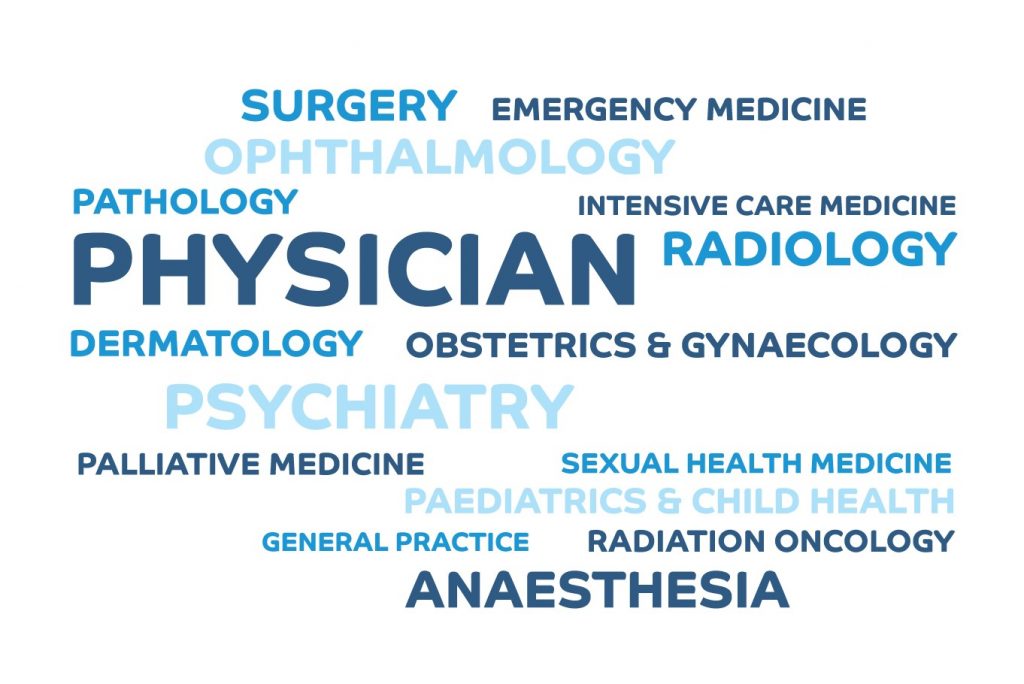
Medical specialists: satisfaction increases over career lifetime
A recent Ekas survey of 158 medical specialists aged 30 and above reveals that 94% are either satisfied or very satisfied with their chosen field, and that satisfaction with this specialism tends to increase with age.
For instance, 100% of practitioners over 70 and above say they are very satisfied with their specialist path, compared with 45% of those aged under 40. Is this simply a reflection of the pressures on younger medical professionals who are still building experience and confidence in their chosen field? Or does reflecting on a long career of helping others naturally provide a more positive perspective?
There’s a correlation between the number of years in a chosen field and the level of comfort a person feels in their career. Again, 100% of those aged 70 and above strongly agree they feel comfortable in their specialist field, compared with 71% of those aged 60-69, 56% of those aged 50-59, 48% of those aged 40-49 and 36% of those aged 30-39.
But this disparity between age groups doesn’t change the overall picture – that as a group, medical specialists not only have high levels of satisfaction in their careers, but 94% agree they see themselves remaining in their field in the future.
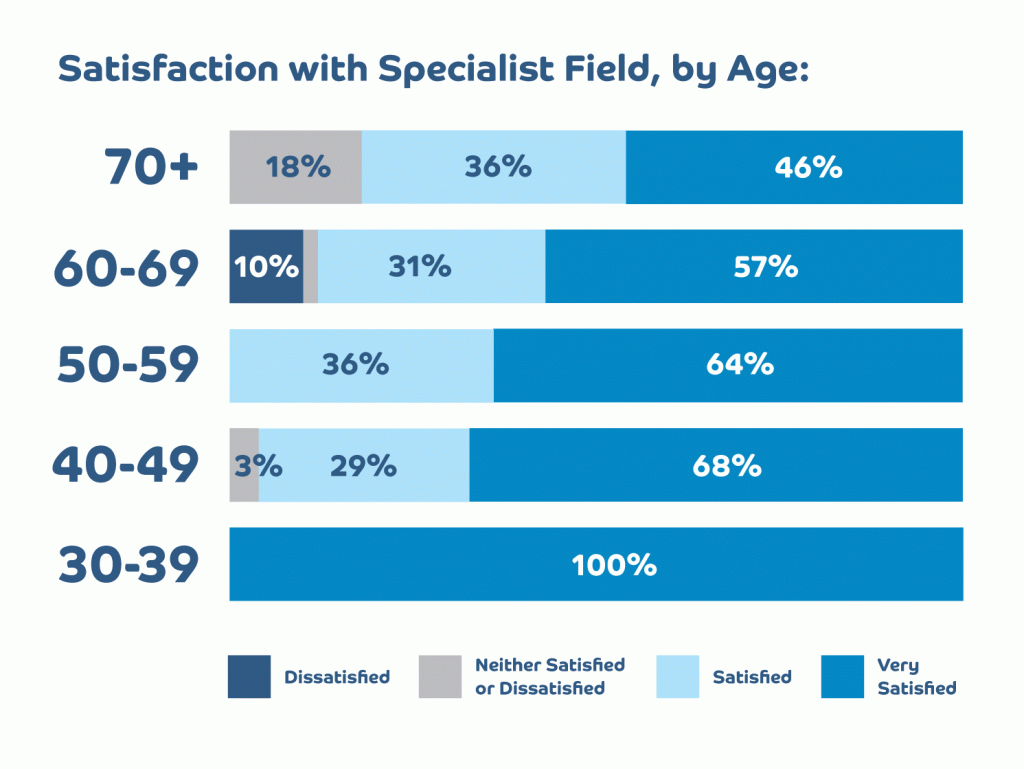
Motivated to stay the course – despite personal sacrifices
It seems the ‘portfolio’ career trend predicted to be a future reality for the current Gen Zers hitting the workforce hasn’t yet spread to medicine.
For some specialists, the commitment to years of training and ongoing study to stay at the forefront of their chosen field is enough of an incentive to remain on a single career trajectory. Some of those polled also believe they are either too old to retrain, or they have invested too much time to change course.
However, the overwhelming majority – 94% – say they are happy in their chosen field. This is despite some of the well-documented challenges – such as long hours and a lack of work-life balance – that tend to come with the territory
Our poll indicates a perhaps not unsurprising link between stress and job satisfaction. Those who say they are very satisfied in their chosen fields are less likely to report feeling stressed than those who are satisfied or dissatisfied in their careers.
This is also the case when asked about their mental health: those who are less satisfied in their careers are more likely to report that their chosen specialism has an impact on their mental health.
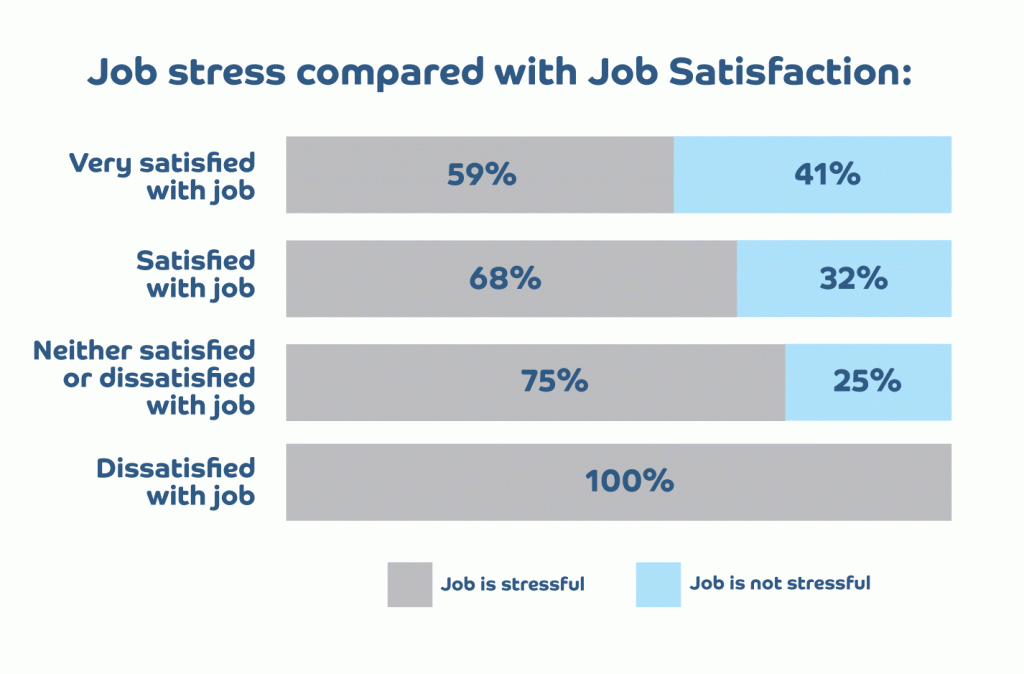
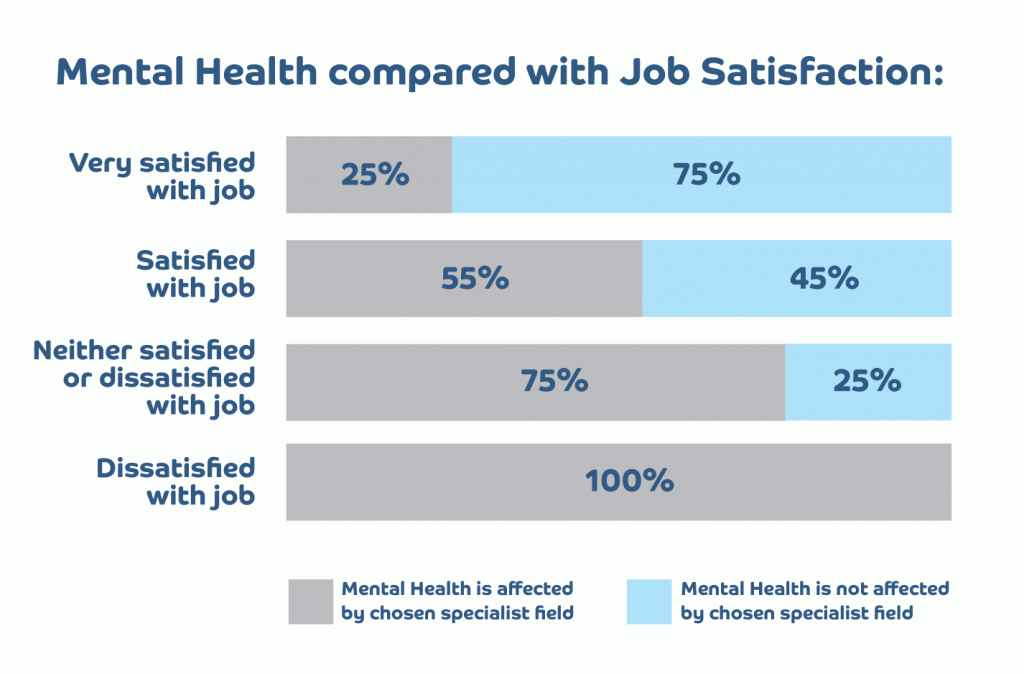
Can passion for a specialist field outweigh the work-life balance struggle?
When asked about work-life balance, only 11% say they have achieved a balance that is fair on family and friends all of the time. However, the work-life balance problem is not confined to one particular specialism. 69% of respondents say they are either unsure or do not believe they would have more of a work-life balance if they were in a different field.
Some specialists also say they are sacrificing their social lives for their careers, with 12% reporting the demands of their role do not let them have a social life outside of work, and 42% saying they would like to work fewer hours.
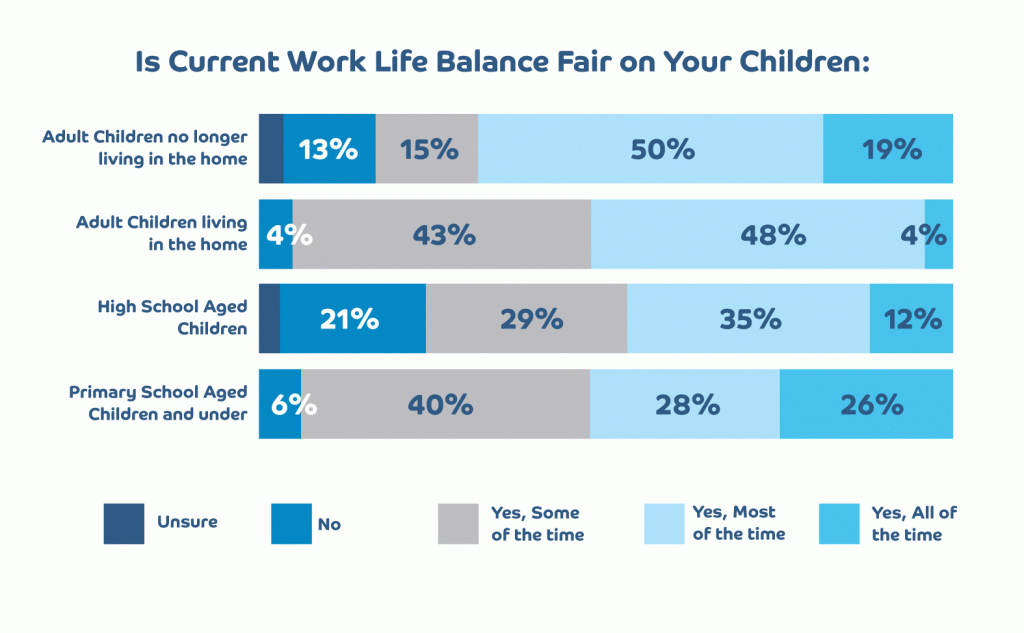
However, despite the toll pursuing a specialist career can take, a majority of those polled do not want to change their paths, and 97% say they believe their chosen field makes a difference.
As to whether medical specialists can achieve what so many hope for at the start of any career – to follow a path that is truly rewarding – 90% agree their jobs are rewarding.
‘I feel valued’: the ultimate motivating factor
The story behind these findings is so much richer than statistics can convey. The responses from the specialists themselves paints a picture of professionals who are wholly committed to their jobs and to making a difference for their patients.
“I love my job,” one specialist writes simply when asked why they feel satisfied with their career choice. “[There is] almost instant satisfaction from patients after surgery,” comments another.
But perhaps one of the biggest motivators of job satisfaction is the high value others give the work specialists do. And this, for many, is worth the personal sacrifice that comes from following such a demanding professional path.
“I feel valued by patients, families and colleagues,” says one panel member. “I’m honoured to be given trust and responsibilities,” explains another.
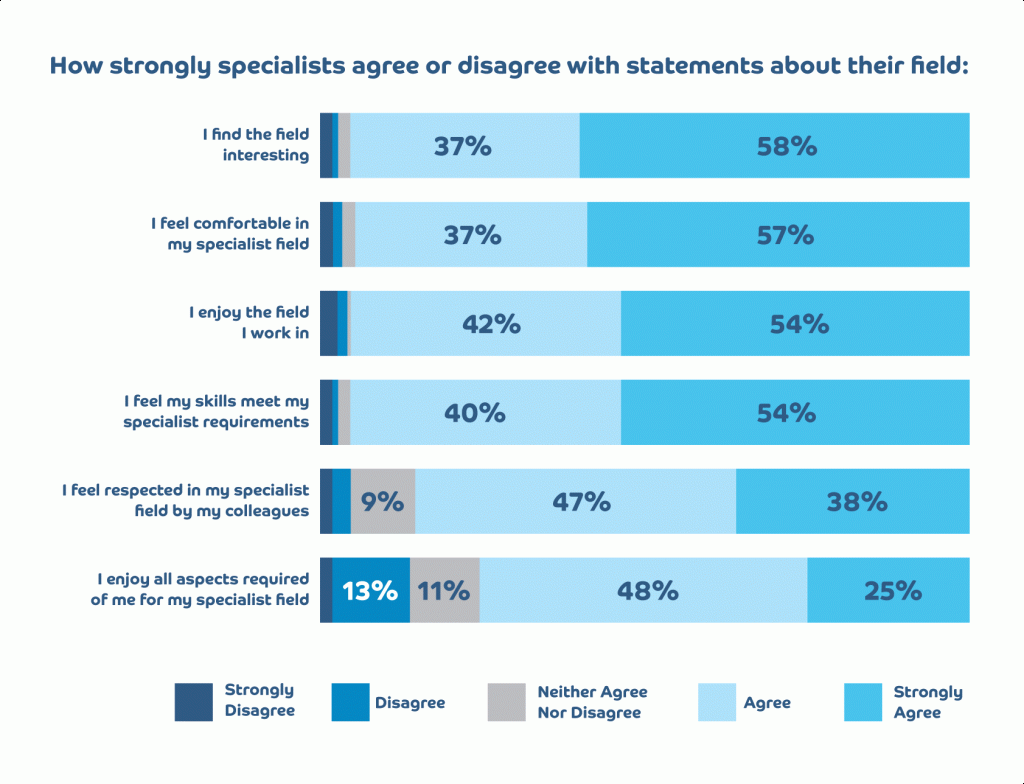
Key findings:
- The top reason for pursuing a specialist field was wanting to help others (56% of respondents)
- 94% of medical specialists are either satisfied or very satisfied with their chosen field
- When they first started their careers in medicine, 27.74% of specialists intended on following the path they are currently following, 72.26% did not intend to
- 96% enjoy the field they work in
- 84.33% feel respected in their field by their colleagues
- 33% feel being in their specialist field takes a toll on personal wellbeing
- 78% would not change career path
Ekas Surveyed 158 Specialists on it’s panel Medical Opinion Leaders in February 2021.
